June 6, 2015. Adventures in New Jaipur, Prabhupadanuga Farm in Fiji
VEDIC VILLAGE REVIEW #44 – – BITS OF NEWS
TIME: it flies when we are busy in the blissful service of Sri Sri Radha Govinda. It’s June already, but here in the Southern Hemisphere this is the cooler season and prime gardening time. New fences have made a fifth, and very large, paddock on the flats between the hills, river, and ocean. Our four bovine mothers have eaten it down already and now the workers will come to chop out the vines and weeds. Good pastures take a lot of weeding and cleaning maintenance – one of the primary features of Kali Yuga is unwanted, choking weeds. Almost anywhere, uncared for cleared land is soon overrun by creeping weeds, thorns, and brush. There are about ten weeds that we are constantly fighting. An old National Geographic article I saw was about a remote, enclosed valley in Tibet with only one narrow entrance where centuries of faithful weeding had completely eliminated all weeds. Sounds nice…
COWS: The permit is in hand, the order is ready, the funds sent. Very soon we will be receiving by air a 20 liter frozen nitrogen semen tank with eighty A2 Jersey and Guernsey “straws.” We will develop over 3 or 4 generations a genetically diversified herd of mixed breed, high quality milk cows through artificial insemination. Thereafter we will retire the AI process for good and use our own breeding bulls. This will be a revolutionary experience for the local people, and a great preaching tool. The 135,000 people on our island of Vanua levu (over half the size of Hawaii Island) have not seen real milk cows in generations. So what to call them? Jernseys… Jaygees… Jerguerns? No, no… How about Jaipur Milkers !
COTTAGES: The third cottage is almost done. Retainer wall complete, porch almost done, all that remains is painting, kitchen counter, screens, and doors. This higher-situated cottage is reserved for a family due to arrive from Europe very soon. The fourth cottage already has its roof and ceiling. The fifth cottage roof was started last week, but now our crew will be going back to cottages 2, 3, and 4 to install racks of solar panels on their roofs.
SOLAR: We have pretty much figured out the standard solar power system that we will be installing on each cottage. Batteries, inverter, panels, and installing technician- all are lined up. We found a local supplier for solar Trojan batteries.
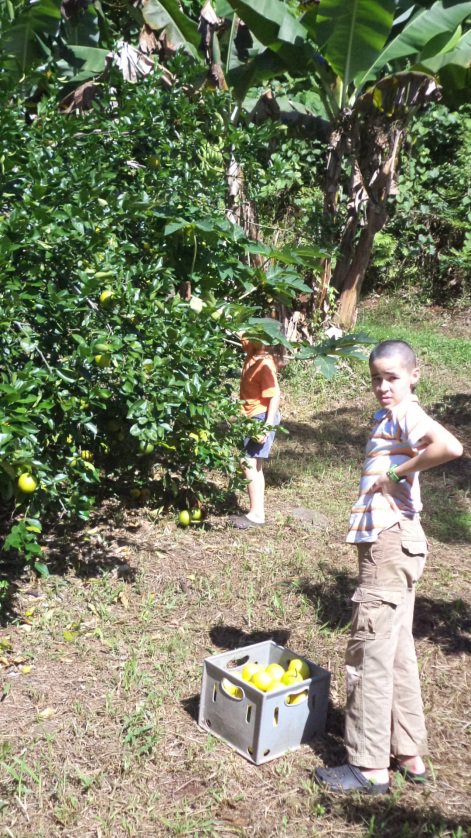
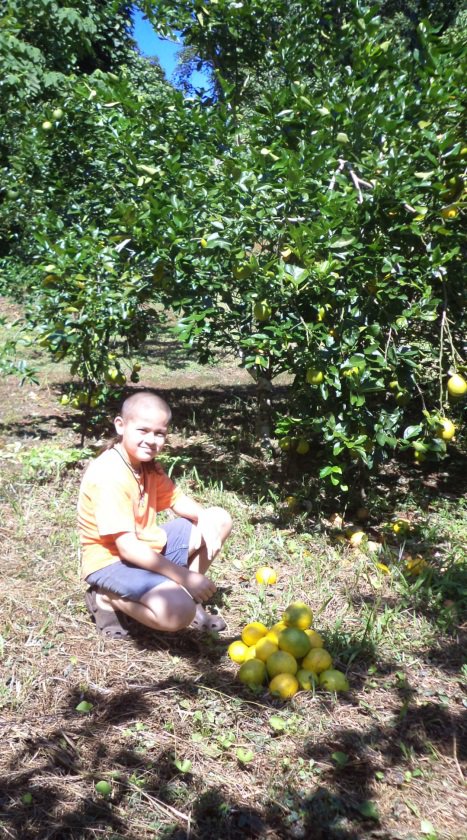
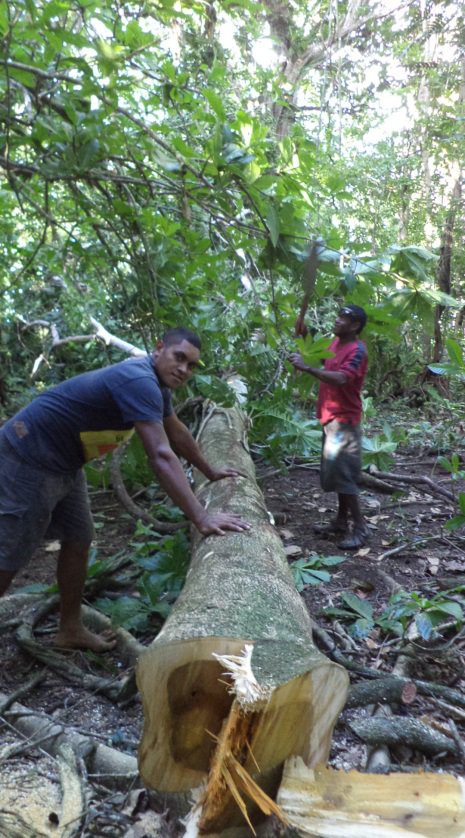
Shyamananda and SriGovinda collect Meyer lemons; our workers cut a Vesi tree for timber
SIMPLE, NATURAL LIVING IN FIJI
by Bhakta Benjamin
We are here in Fiji now and life is really simple. Hard work, but there is no pressure and much less artificial things. We are seeing 4 cows grazing in front of our cottage (100m), and it is the same distance to the ocean or river. A main dharmashalla with the nicest Sri Sri RADHA GOVINDA and a very Prabhupada centered program. The morning program here is constantly giving bliss, seeing the deities 4:30 am and ending with ecstatic guru puja.
We have enough space as grhastas in our small cottage, and we exchange with the local Fijians about how to cook with wood, plant crops, etc. There is plenty papaya, starfruit, water cress, bananas, dalo leaves, ota, and more. We planted sugar cane as well as some cucumber and water melon, and already a good amount of our first long beans were harvested. We also planted cabbage, lemon tree, spinach, neem tree, lemongrass, coconut, sunflowers, coriander, haldi/turmeric, and some breadfruit trees.
Wild shampoo-ginger has red big flowers which are used in Hawaii and Fiji, by the natives to wash hair; so Anika who was really worried about her supply of organic hair shampoo is very happy. Brahmi herb is growing wild, we pick some almost every day and make tea or just chew it. Another thing found in the natural environment are Ivi forest nuts and tavola beach nuts (beach almond). Tavola takes a while to learn the how to crack it open.
The local spinach-type plants bele, roro (dalo leaves), and ota make a nice subji. Tapioca, dalo are very easy to grow and good kapha building foods, being really full of starch, similar to potato in taste. We planted a lot of kumala, sweet yams. We never did gardening before, so it must be the mercy of the Lord that everything is (so far) growing nicely here in Fiji…
These days the weather is changing from summer/rainy season to very windy… one day a papaya tree blew down, so we had around 20 papayas, green and raw. We learned that one can cook them, as well as the leaves. The seeds are edible too, one can dry them and use them instead of pepper. Our first veggies are now coming in ready, as Fiji is really good for growing lots of different sattvic foods easily.
(BELOW: POND LILIES FOR THE DEITIES)
We are trying to reduce any need to go to town. Yesterday we made our own distilled water and then some colloidal silver. We adjust our diet somewhat to use whatever Krishna supplies us, like when we have lots of coconuts, or plenty green and ripe papayas and bananas. We try to live off the land while keeping up our good health. We grate coconuts for salads, subjis, sweets. Lately we took buckets of seawater and made our own sea salt, and also cook with seawater.
Regarding sugar, we were thinking we should try sugarcane or make jaggery from coconut trees, but both are not so easy, maybe we should grow stevia as sweetener. We try to teach our kids (two boys, 3 and 5) simple living by lesson – showering as often as we can, actually fun when it is warm. Washing hands, mouth, prasadam sitting place after eating, common family spirit, like everyone sits till the others are ready, meanwhile watching cows, birds or ocean….working together in the field, getting cow dung, having loud kirtan while walking or playing lilas together.
Today Damodar (3) took out his bead bag in japa time, and started chanting for a while. His brother Gopal (5) wanted to show that he can do better and chanted 1 round while singing the mantra slowly. I cannot imagine this to happen somewhere else. We like to inspire them a lot regarding their actual interest to develop something; yesterday they made brooms for their altars from palm leaves and sticks and were so inspired, and today the older one made his first bow and arrow.
On the beach we got some dilo nuts which works like a pot scrubber. We took some seeds from the lipstick tree and let the kids grind it, then we mix it with water and they had a woodpainting project. So, nothing really special to share, only discoveries in simple living.
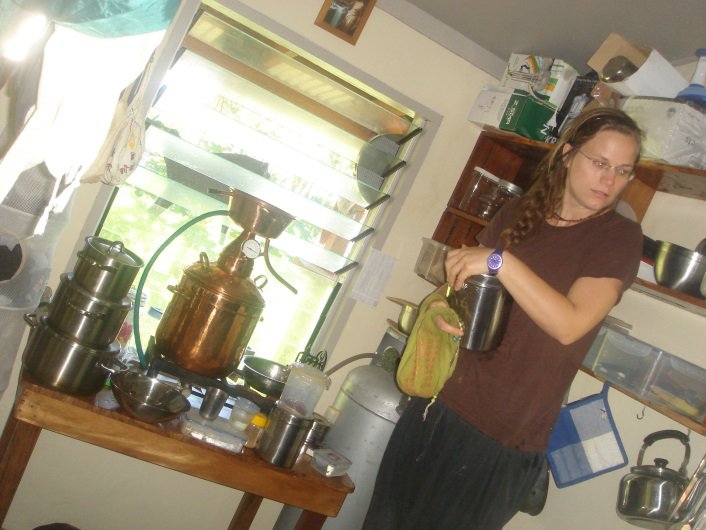
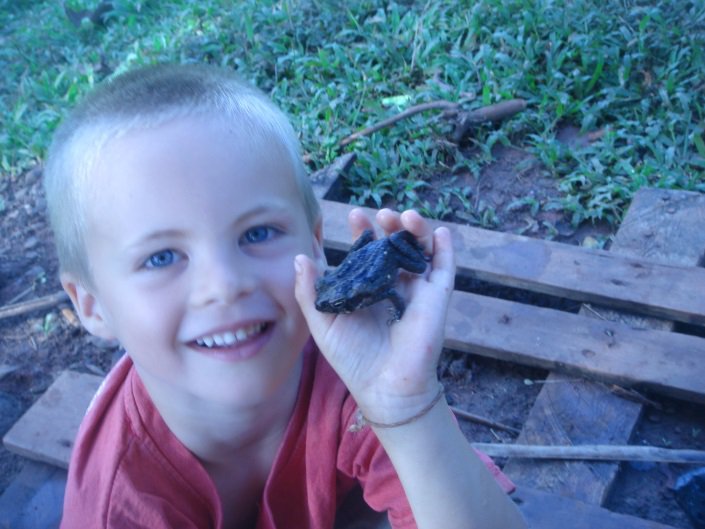
– ANIKA WITH DISTILLER IN HER COTTAGE – – GOPAL WITH BABY FROG –
We spent around 200 euros each month, but we are just now coming to a rhythm with not so much extra expenses. In general we go to the town market every 2-3 weeks and buy veggies, butter, ghee, sunflower seeds, dates, raisins, dried banana, dal, rice, spices, breadfruit flour (we avoid wheat). We want to make our own sun dried fruits soon; also breadfruit or cassava flour with a mill. Cassava and dalo roots can be harvested as needed; no need to freeze, preserve, stock for the winter- Fiji has year-round growing season!
For now we catch a ride to town with Nityananda das, but in the future we might get another vehicle to share among devotees. We are getting fresh cow milk (local cows, FJ$2/L) once a week, better than none. Internet is 25 FJD a month, cheap. No costs for banking, water, garbage, sewage, electricity, insurance, transportation and so on, like it was in Germany.
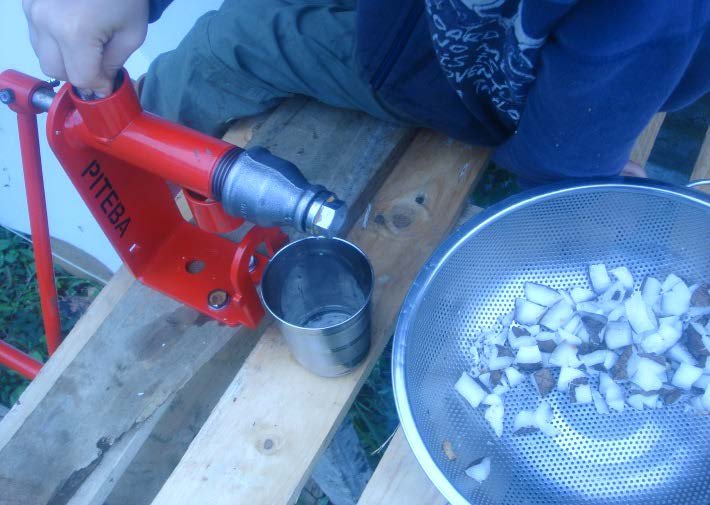
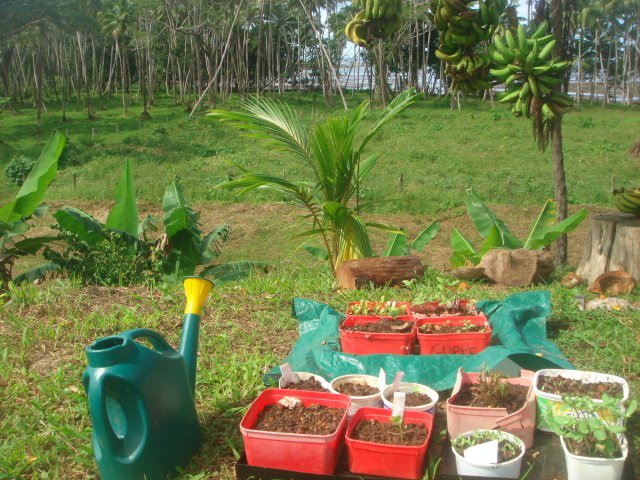
MAKING VIRGIN COCONUT OIL BY PRESS – – STARTING SEEDLINGS WITH A SEA VIEW
A lot of the weeds here are very useful so I want to try distillation for medicinal purposes, or boil them to make insecticide. We have colloidal silver, can make essential oils and fresh plant juices, there is mostly no need to get antibiotics, fungicides, other medicines. But we brought Ayurvedic medicines and hope in the future to offer treatment to the community and locals as well. I gave the head of Immigration some thyme oil for his toothache.
We use the ash from coconut husks for washing pots and the body, and ash from dry cow dung for medicinal purposes or making creams. So much to do. I don’t know how Nityananda is able to keep up his pace he is used to. I hope we can continue for many years to with determination. Here it is just so peaceful and a good ground where Krishna consciousness comes easily for the kids and their good character can develop, without maya distractions.
All in all a very good choice to live, especially for the raising of our kids, and living simply, to become “lazy intelligent”. It is a good to take time, slow down the outer pressures, become steady for reestablishing our hidden relationship with the Lord. And the farm life is preaching, no need for unnecessarily being hectic, our lives should be exemplary, utilized to satisfy Krishna, so others can see and follow, as Prabhupada wanted. We can learn to work together for our eternal father- how can we do this while living in the cities or anywhere except in a spiritual village?
LETTERS TO THE EDITOR:
BHAKTA ALEXANDER, FROM RUSSIA:
Yes, there are a lot of enthusiastic devotees in Russia – mostly in official ISKCON. We have those I can call Prabhupadanugas in the sense that they accept Srila Prabhupada as their initiating spiritual master, not many for now. They are scattered in different places with several regular programs going on, and we’re going to open a new restaurant and a new Prabhupada centered ashram soon. Also, we have two farms, you can see one of them here: https://youtu.be/KebUtPerO2A
We are translating Bhagavad Gita As It Is (1972 edition) into Russian because first Russian Gita published in 1984 was from the changed, edited English version. About Putin, he is actually friendly to the devotees, or at least is seen smiling in photos with them.
FROM RUSSIA, WITH KIRTAN (PRABHUPADANUGA GATHERING)
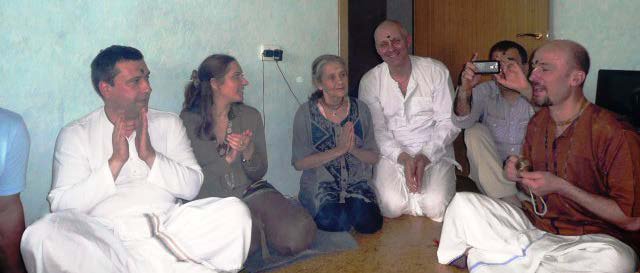
RAMANANDA RAYA PRABHU, MONTREAL:
Thank you very much for VVR #43. I also read your latest Prabhupada memory and it was very entertaining, inspiring. Have you ever considered the GYR variety of cow? It is supposed to be a big milk producer as well. There is an interesting website called “THE VEDIC WAY”. They have a YouTube channel. They are two devotees, followers of Srila Prabhupada, farming on their own in Mexico.
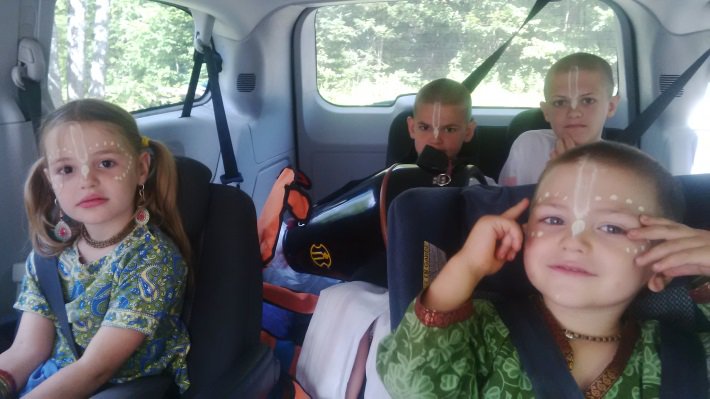
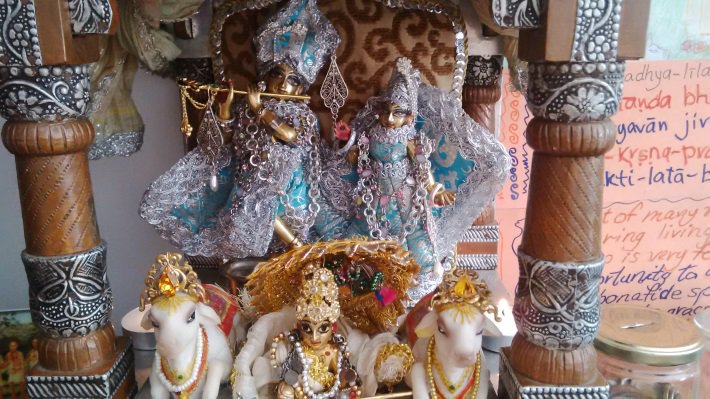
Ramananda Raya and Jaya Radhe Prabhu’s effulgent children, and their deities in Canada
They have done many experiments based on Vedic sciences relating to village and farm life, cows and the benefits of all their by-products, and VAASTU architecture as well. GYR is supposed to be the most ancient cow variety originating in Dwaraka; they have at least two distinguishing features, being the hump containing an important vein that draws the subtle benefits of the sun, and the dulap or the skin hanging from their chest.
JITARATI PRABHU, HONG KONG:
Just wanted to let you know how much I appreciate your newsletters. I read them all thoroughly and find them very inspiring. Your example will inspire many to finally achieve what Prabhupada wanted us to do for ourselves and the whole world. Meanwhile I am going on and printing Prabhupada’s original books with plans to reach numbers of millions and then 100’s of millions. So far: many unchanged pocket Gitas and now hard cover full editions. GITA (Gita International Trust Association) has been established worldwide and just like Gideons Bible, using similar methods, I hope to vastly increase the Gita distribution. Next: an unchanged Bhagwatam set, 10 volume, full size, original edition with KRISHNA BOOK in a hard slip cover, 10 kgs and under 12 inches wide.
RE: Ameyatma’s article on natural butter and ghee making- with a little research, I’m not sure it is entirely accurate. I am still checking but apparently using modern yogurt and cultures is not the best way to start. Traditional curd making in India is much different and always remains sweet. All modern yogurts go sour after a few times (I’ve heard), which I have certainly experienced with even the most natural pot set and un-homogenised whole milk yogurts from the market. Also the whole curd is churned to get the butter and butter milk, not just the curd cream. That is what Prabhupada has said and as always, turns out to be true. After seeing the videos on you tube you might want to try it. I am checking with Gaura Nitai in Canada and Tattva Darshan to see if we can end up with the tried, proven best method. Hope you continue to do well and remain healthy for a few more decades. We have so much to do.
FEATURED PLANT: LIPSTICK BUSH
When we came to Fiji, the lipstick bush seeds that I brought had been fumigated by Biosecurity, but while we were clearing the dense bush of the property and building the internal farm roads, I recognized two lipstick plants underneath the vines. Lucky I was there, or the excavator and machetes would have finished it off. Struggling to see some sunlight, it was uncovered and quickly thrived, producing its characteristic seed pods full of deep red seeds which are crushed or powdered to make a potent natural red dye. Ladies used to apply as a cosmetic, bindi, or kunkum. We think the plants survived for generations since Indian farmers left the estate about 60 years ago. Recently Benjamin collected some, seen below.
FROM SRILA PRABHUPADA’S BOOKS
(Srimad Bhagwatam 1.10.4,
New Vrindavan, WV, USA)
kāmaṁ vavarṣa parjanyaḥ
sarva-kāma-dughā mahī
siṣicuḥ sma vrajān gāvaḥ
payasodhasvatīr mudā
TRANSLATION
“During the reign of Mahārāja Yudhiṣṭhira, the clouds showered all the water that people needed, and the earth produced all the necessities of man in profusion. Due to its fatty milk bag and cheerful attitude, the cow used to moisten the grazing ground with milk.”
PURPORT
The basic principle of economic development is centered on land and cows. The necessities of human society are food grains, fruits, milk, minerals, clothing, wood, etc. One requires all these items to fulfill the material needs of the body. Certainly one does not require flesh and fish or iron tools and machinery. During the regime of Mahārāja Yudhiṣṭhira, all over the world there were regulated rainfalls. Rainfalls are not in the control of the human being. The heavenly King Indradeva is the controller of rains, and he is the servant of the Lord. When the Lord is obeyed by the king and the people under the king’s administration, there are regulated rains from the horizon, and these rains are the causes of all varieties of production on the land. Not only do regulated rains help ample production of grains and fruits, but when they combine with astronomical influences there is ample production of valuable stones and pearls. Grains and vegetables can sumptuously feed a man and animals, and a fatty cow delivers enough milk to supply a man sumptuously with vigor and vitality. If there is enough milk, enough grains, enough fruit, enough cotton, enough silk and enough jewels, then why do the people need cinemas, houses of prostitution, slaughterhouses, etc.? What is the need of an artificial luxurious life of cinema, cars, radio, flesh and hotels? Has this civilization produced anything but quarreling individually and nationally? Has this civilization enhanced the cause of equality and fraternity by sending thousands of men into a hellish factory and the war fields at the whims of a particular man?
It is said here that the cows used to moisten the pasturing land with milk because their milk bags were fatty and the animals were joyful. Do they not require, therefore, proper protection for a joyful life by being fed with a sufficient quantity of grass in the field? Why should men kill cows for their selfish purposes? Why should man not be satisfied with grains, fruits and milk, which, combined together, can produce hundreds and thousands of palatable dishes. Why are there slaughterhouses all over the world to kill innocent animals? Mahārāja Parīkṣit, grandson of Mahārāja Yudhiṣṭhira, while touring his vast kingdom, saw a black man attempting to kill a cow. The King at once arrested the butcher and chastised him sufficiently. Should not a king or executive head protect the lives of the poor animals who are unable to defend themselves? Is this humanity? Are not the animals of a country citizens also? Then why are they allowed to be butchered in organized slaughterhouses? Are these the signs of equality, fraternity and nonviolence?
Therefore, in contrast with the modern, advanced, civilized form of government, an autocracy like Mahārāja Yudhiṣṭhira’s is by far superior to a so-called democracy in which animals are killed and a man less than an animal is allowed to cast votes for another less-than-animal man.
We are all creatures of material nature. In the Bhagavad-gītā it is said that the Lord Himself is the seed-giving father and material nature is the mother of all living beings in all shapes. Thus mother material nature has enough foodstuff both for animals and for men, by the grace of the Father Almighty, Śrī Kṛṣṇa. The human being is the elder brother of all other living beings. He is endowed with intelligence more powerful than animals for realizing the course of nature and the indications of the Almighty Father. Human civilizations should depend on the production of material nature without artificially attempting economic development to turn the world into a chaos of artificial greed and power only for the purpose of artificial luxuries and sense gratification. This is but the life of dogs and hogs.
SUMMARY
New Jaipur is a positive alternative to the rapidly devolving situation in the modern world. Nuclear war approaches, and humanity is due for much turmoil which can only be alleviated by establishing Prabhupada’s varnashram Hare Krishna farms. New Jaipur Vedic Village farm project retains Srila Prabhupada as the sole diksa guru, via rtvik representatives. We are part of Prabhupada’s transcendental ISKCON which is situated beyond the now-corrupted original institution. Prabhupada resides wherever his instructions are strictly followed. We have 857 acres of titled, fully-paid land in a South Seas rainforest on Fiji’s second largest island. There are openings for qualified devotees based on Village Constitution conditions (available by email). Interested persons, please inquire. The standard: 16 rounds daily, the four rules, 8 hours community service a week, regular morning programs, and be a productive participant, one fifth of production/income goes to the deities, Sri Sri Radha Govinda. Nice cottages and lots available on lease. Vedic villages are the future of the world. Please consider a visit to New Jaipur, and be our guest in paradise; this is an invitation to Prabhupadanugas everywhere. Life here is simple but not austere. Welcome also: temporary residents who would like to do devotional service may offer assistance to the Vedic village with any skills they may have.
Yours in Prabhupada’s service,
![]()
To be added to our regular mailings of Vedic Village Reviews or make a donation, please send us an email at srigovinda@gmail.com. Hare Krishna! All Glories to Srila Prabhupada!
NEW JAIPUR FIJI WEBSITE (in progress):
www.vedicvillage.org
All previous Vedic Village Reviews are on our website, as well Srila Prabhupada memories, project information, guru tattva, many photos and much more.
ALL GLORIES TO SRILA PRABHUPADA !
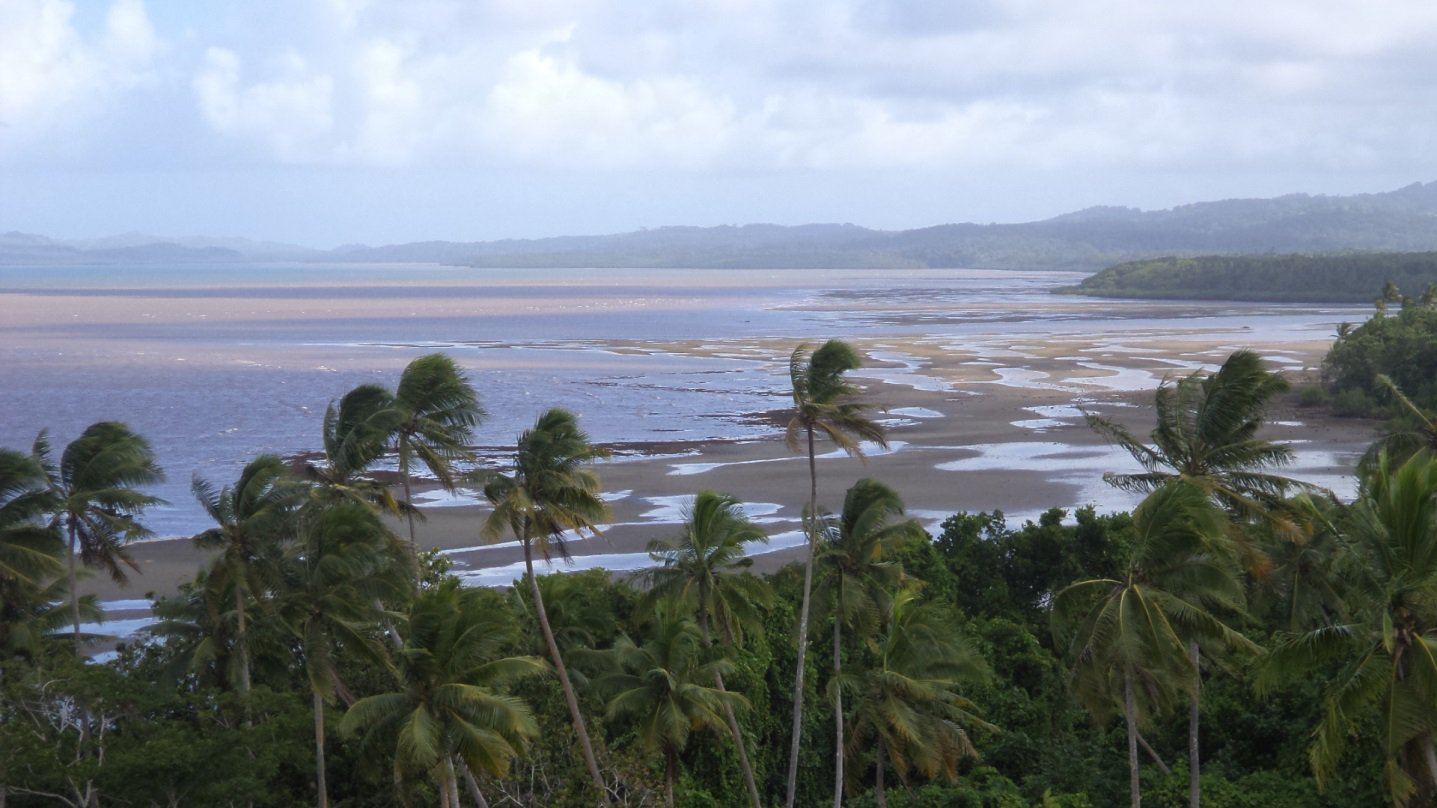
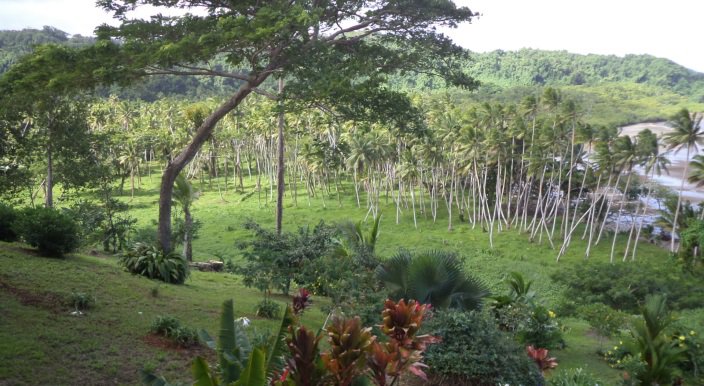
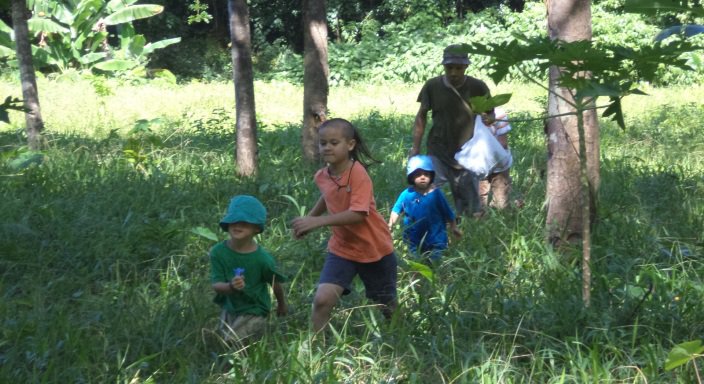
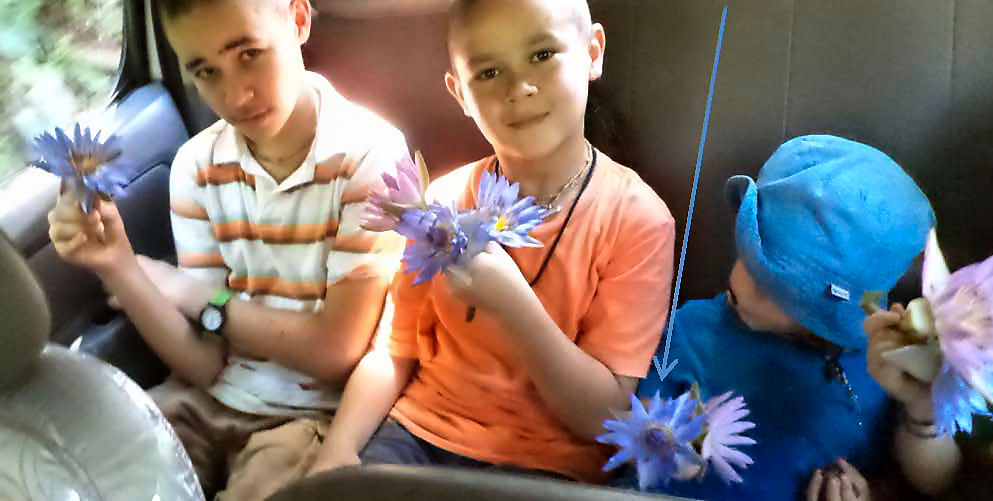
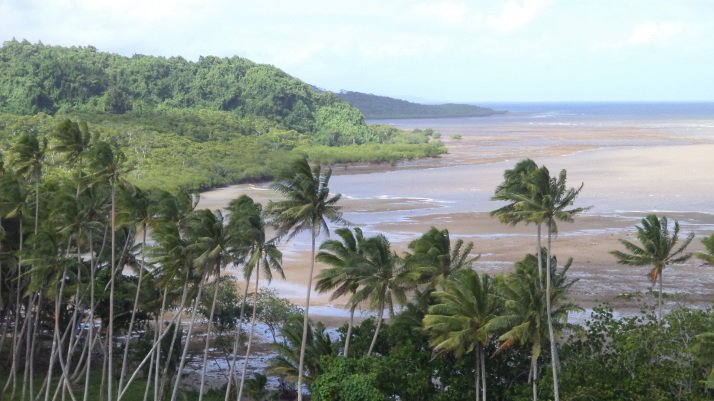
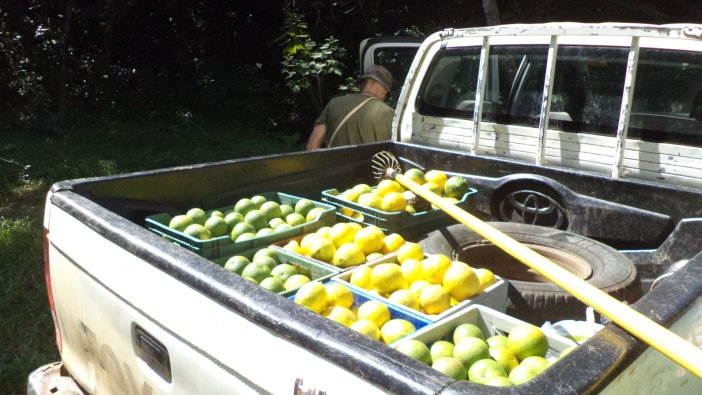
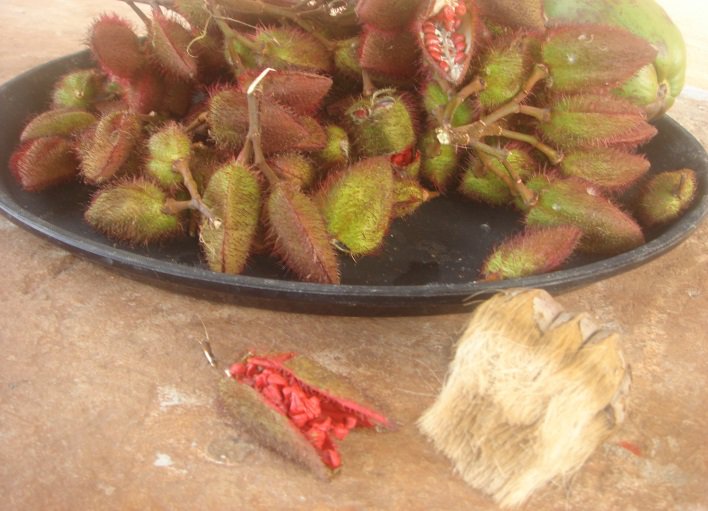
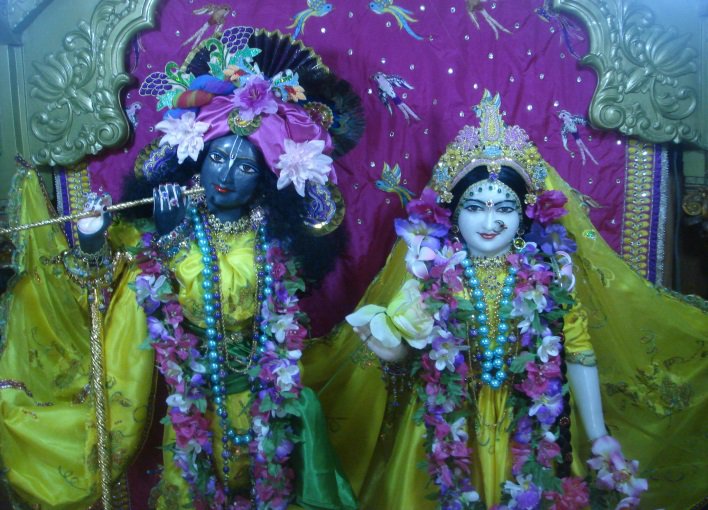
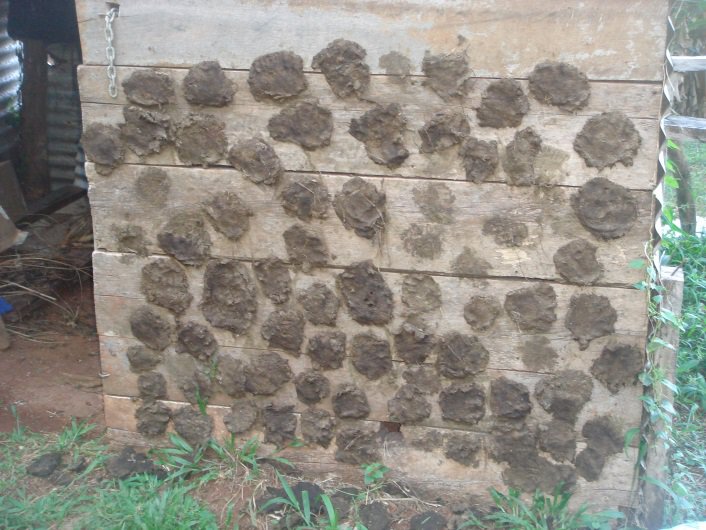
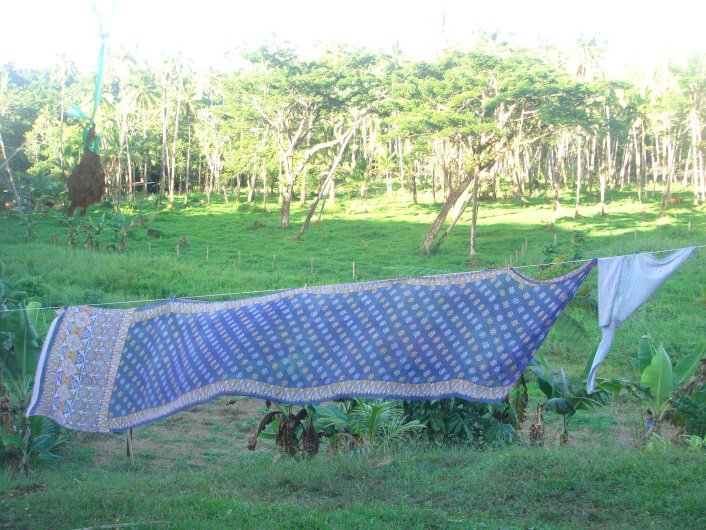
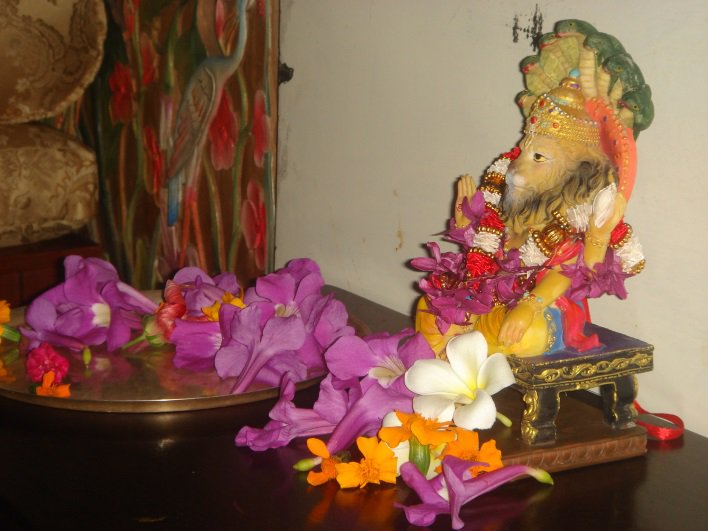
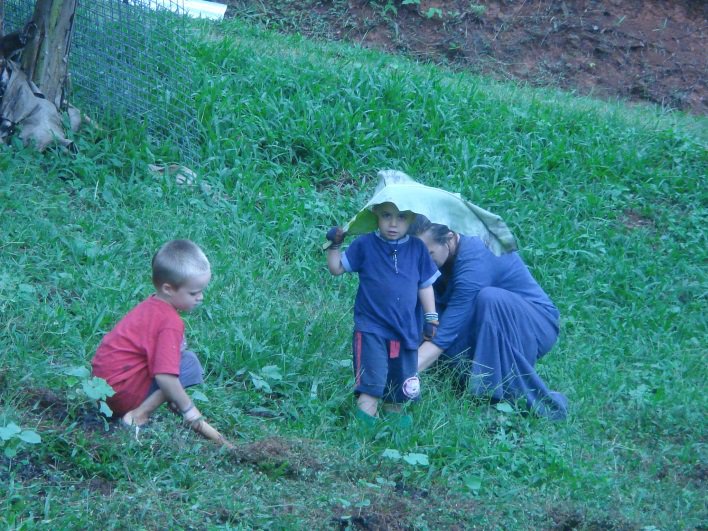
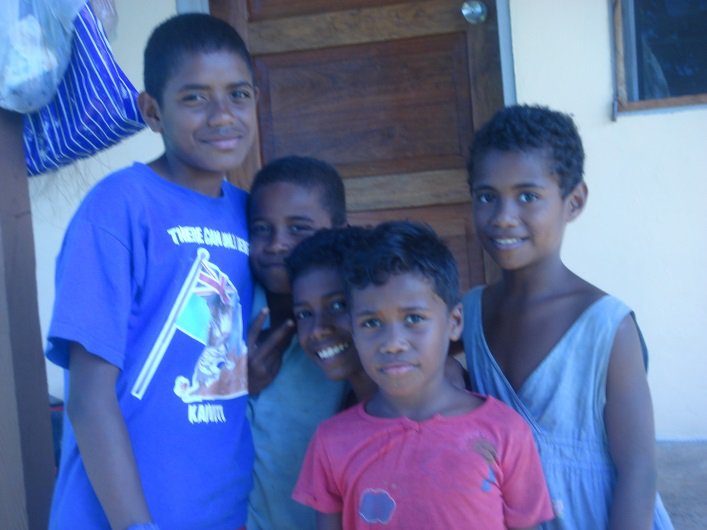
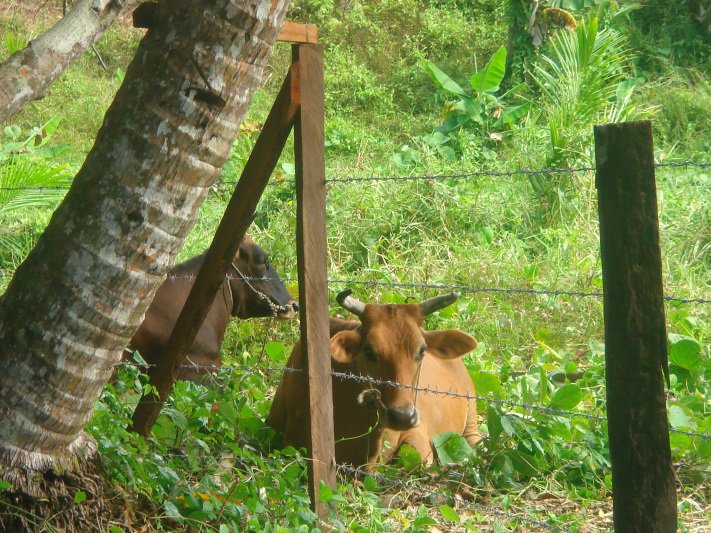







Speak Your Mind